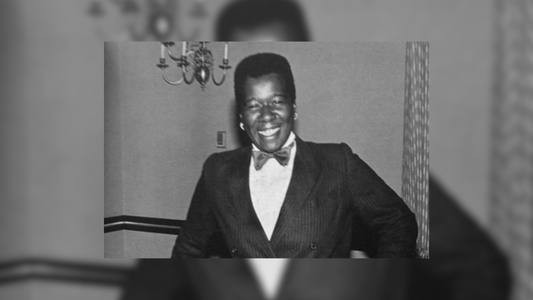In the world of modern elections, money talks—and few entities have a louder voice than Super PACs. These organizations have become powerful players in U.S. politics, raising and spending vast sums of money to influence the outcome of elections. But what exactly are Super PACs, and how do they differ from traditional Political Action Committees (PACs)? This post will explore the rise of Super PACs, their role in the political process, and the controversies surrounding their influence on democracy.
What is a Super PAC?
Super PACs, or "independent-expenditure only committees," are political organizations that can raise unlimited sums of money from individuals, corporations, unions, and other groups to advocate for or against political candidates. Unlike traditional PACs, Super PACs are prohibited from donating money directly to candidates or coordinating with their campaigns. Instead, they spend money independently to run ads, conduct research, and engage in other activities aimed at influencing voters.
Super PACs emerged after the 2010 Supreme Court decision in Citizens United v. Federal Election Commission and the subsequent SpeechNow.org v. FEC ruling. These decisions struck down limits on independent political spending by corporations and unions, leading to the creation of Super PACs as a new force in American elections.
How Do Super PACs Work?
Super PACs are relatively simple in their operation: they collect donations from a wide range of sources and then use that money to support or oppose political candidates. The key distinction between Super PACs and traditional PACs lies in their independence. While traditional PACs can donate directly to candidates but face contribution limits, Super PACs can raise and spend unlimited amounts of money—but they cannot coordinate with the candidates they support.
This independence, however, is often more theoretical than practical. While Super PACs are legally required to operate separately from the candidates, there are many ways in which they can subtly coordinate their efforts without directly violating the law. For example, a candidate’s campaign might publicly release information or strategy that a supporting Super PAC can then use in its efforts.
The Influence of Super PACs on Elections
The rise of Super PACs has dramatically altered the landscape of American elections. Here are some of the ways in which they exert influence:
- Massive Spending Power: Super PACs can spend vast amounts of money on advertising, often outspending the candidates’ own campaigns. This spending can shape public perception of candidates, define key issues, and sway undecided voters.
- Attack Ads: Because Super PACs are not officially tied to candidates, they often take on the "dirty work" of running negative ads against opponents. These ads can be more aggressive and controversial than those funded by the candidates themselves, allowing campaigns to maintain a veneer of positivity while their Super PAC allies go on the offensive.
- Shaping the Agenda: By focusing their spending on specific issues or narratives, Super PACs can influence the topics that dominate the election cycle. For instance, a Super PAC might spend heavily on ads related to healthcare, immigration, or the economy, forcing candidates to respond to these issues in their campaigns.
Controversies Surrounding Super PACs
Super PACs are highly controversial, and their influence raises several ethical and democratic concerns:
- Undue Influence of Wealthy Donors: One of the biggest criticisms of Super PACs is that they give disproportionate influence to wealthy individuals and organizations. A small number of mega-donors can contribute millions of dollars to Super PACs, effectively buying greater political influence than the average voter. This raises concerns about the integrity of the democratic process and whether elected officials are more accountable to their wealthy backers than to their constituents.
- Lack of Transparency: Although Super PACs are required to disclose their donors, the system is far from transparent. Donors can funnel money through nonprofits and other entities, making it difficult to trace the true source of the funds. This lack of transparency can undermine public trust in the political process.
- Erosion of Candidate Accountability: Because Super PACs operate independently of candidates, there’s less accountability for the content of their ads and the strategies they employ. Candidates can distance themselves from negative or misleading ads run by Super PACs, even if they privately benefit from them.
- Impact on Political Polarization: The aggressive and often negative campaigning by Super PACs can contribute to political polarization. By focusing on divisive issues and running attack ads, Super PACs can deepen the divide between political parties and make it harder for candidates to find common ground.
The Future of Super PACs
The role of Super PACs in U.S. elections is unlikely to diminish anytime soon. Despite calls for reform and efforts to limit their influence, the Supreme Court’s rulings have cemented their place in the political landscape. Some advocates argue for increased transparency, such as requiring more detailed disclosure of donors, while others push for a constitutional amendment to overturn Citizens United.
In the meantime, Super PACs will continue to be a major force in American politics, shaping the outcomes of elections and the direction of policy debates. As voters, it’s important to understand the role these organizations play and to critically evaluate the information and messages they promote.
Conclusion
Super PACs have fundamentally changed the way U.S. elections are conducted, giving rise to new dynamics of power and influence. While they provide a way for individuals and groups to express their political views, they also raise serious concerns about the fairness and integrity of the democratic process. As the debate over their role continues, it’s crucial for voters to remain informed and engaged, holding both candidates and the organizations that support them accountable.




